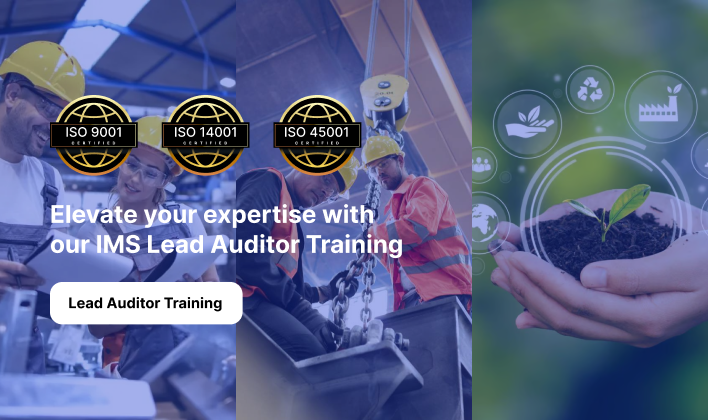
Integrated Management System combines the three management systems viz. Quality Management System (QMS), Environmental Management System (EMS) and Occupational Health and Safety (OHS) into a single system for ensuring better management of operations. This helps organizations in seamless implementation of the key concepts and requirements based on ISO 9001, ISO 14001 and ISO 45001. This comprehensive course provides hands-on training to ensure that the participants thoroughly understand the role and acquire the expertise needed to conduct a baseline audit of an organization bases the key principles with regards to ISO 9001, ISO 14001 and ISO 45001.
Who should attend?
This course is specially designed for QEHS Managers and Officers, QEHS Internal Auditors and/or Safety Auditors, Management System professionals and/or consultants, personnel in-charge of legal requirements and/or anyone interested in QEHS Management System.